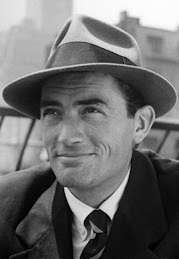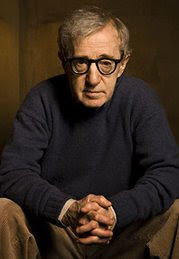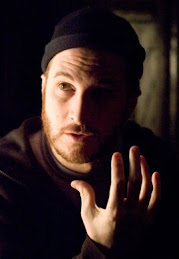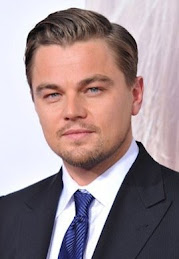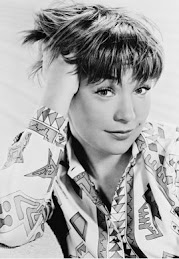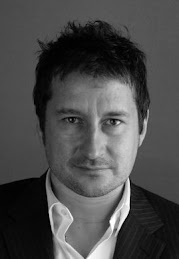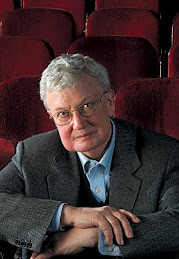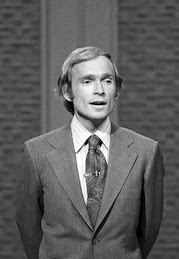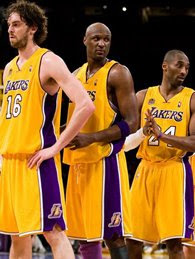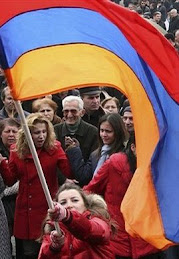
There's something special in the pose each of these filmmakers have given us, because it reveals so much about where they're from. Giuseppe Tornatore appears proud to be Italian, with his hands behind his back, full of confidence. Jacques Audiard is a true Frenchmen, with a smile on his face, and without a care in his mind. Michael Haneke rests his arms in front of him, the most experienced of the bunch, who has worked in countries outside of his native Germany. Sebastián Silva stands with his hands in his pockets, the youngest and most casual, representing his beloved Chile.
La nana (Chile)
Sebastián Silva discussed his inspiration for the film, which was from all the maids who have been treated unfairly around the world, and their unique relationship between their employers. Silva also said there is an emotional relationship that is made awkward because the money that lies between them. Interestingly enough, Silva mentioned that maids in Chile have their own personal maids, which signifies that it is not an upper-class privilege.
The Maid is Silva’s second feature film, and he considers it to be an emotional film that exercises its emotional demons. The film is based on two real-life maids, who were described as victims of circumstance. Silva claims that the film is meant to show us the jealousy these maid’s feel of other people’s freedom. Their job demands them to work around the clock, which denies them a social life and gives them “slave traits.” He also described these maids as “contemporary nuns.” The film was written for the lead, Catalina Saavedra, who had previously worked with Silva on his first feature film. Silva said that the filmmaker should not express their personal representation in their own films, and instead allow the audience to shape the outcome on their own. He considers Walt Disney is greatest influence, who was known for saying that every tear must have a laugh to match it. Silva also claims that because life does not have a genre, that is how he views his films. His Hollywood influences include Eliza Kazan, for his masculinity; Robert Aldrich, for his quirkiness; Woody Allen for his wittiness and Terrence Malick.
Un prophète (France)
Un prophète is being considered "as epic as Godfather" but Jacques Audiard's inspiration came from a visit to a prison. Audiard said that the people they came across were being considered political prisoners, and they were both shocked by the extreme poverty, which gave them the first images of the film. He also described the genre of Un prophète as Film Noir. He claims that the importance of cinema is its relationship with reality, and that cinema is a never-ending communication. Audiard’s decision to work with Arabs in this film added to its reality because it is something we haven’t seen done in other French films.
Baarìa (Italy)
Giuseppe Tornatore is most famous for Cinema Paradiso, but his latest his film is a beautiful tale of three generations in the Sicilian village where he was born. He claims that the film is more than biographical. Baarìa includes many episodes that were born from fantasy, and is meant to be a “following of generations” in which time is meant to represent eternity. His intentions with the film were to show that time was transfiguring the characters. Ennio Morricone had to turn down the offer of scoring Quentin Tarantino’s Inglourious Basterds to work on this film. Tornatore said the film is primarily scored prior to filming. He claimed that he doesn’t like to work with temp tracks, and says his collaboration with Morricone usually begins during the first draft of the script. During their first meetings, they discuss the elements of the story and subtext. Tornatore prefers having all the music finished before filming begins and he likes knowing his soundtrack and often edits to the music.
During his eccentric rant, Jacques Audiard claimed that the film industry in Italy is in a state of decline. Tornatore responded by saying that in spite of the decline in their industry, their creativity has not been matched. When asked about his recent remake of Everybody’s Fine, he said he had not yet seen the film but finds these remakes “curious” and compared it to moving from a house and being curious about who lives there years later.
Das weisse Band - Eine deutsche Kindergeschichte (Germany)
The White Ribbon was written 20 years ago as a mini-series for television. Michael Haneke said there were two reasons for his choice of shooting in black and white. Firstly, we know this specific time period through photographs, which are all in black and white. It is easier to identity with this period of time through these images. It also added to the element of alienation within the people and their lives. Mike Goodridge pointed out the claim that the children in the film represent the Nazis that would come about within the following twenty years. Haneke said this was, indeed, an example of the regime. The children of the film were extremely difficult to cast, because they had to meet with 7,000 children within six months. Mike Goodridge asked if he is controlling with his actors, Haneke let out a small sigh and smiled, and softly said “yes.”
Haneke also said the film is not just meant to represent Germany, but is also meant to represent totalitarianism in America. It’s an example of the dangers for our country, and not just Germany’s society. The White Ribbon was also co-produced by four countries because of the increasing difficultly to finance films. In Haneke's opinion, films are made for the entire world, and he does not bear the flag for a specific country. He also claims he prefers filmmakers to insist of the uncertainty, and does not like when films seem to know everything, and those who offer solutions to the problems are liars/cynics. Haneke believes we should not expect responses, and that we should simply pose the questions.
Because of the language barrier, his work on Funny Games U.S. was the most difficult and stressful of his career. His reason to remake the film was quite clear, and was because the original did not have any success with the English audience. His intentions were to bring the film to the English audience, but the film was a failure and it was not a positive experience. Haneke was also asked about the ending of Caché, which has riddled us with mysteries. The ending, supposedly, was written with dialogue for the actors, but was decided against at the final moment as Haneke made the young boys swear to keep the film's ending a secret. Finally, when asked which of his films he enjoys the most, he replied with “a good father loves his children equally."
I know, I know. It was quite amazing being around all these filmmakers. I felt like following them to their limousines and allowing them to become surrogate filmmakers. I didn't get the chance to do so, but I did manage to surround myself with Michael Haneke and Jacques Audiard. I also spoke to Tahar Rahim, and if Un prophète is being compared to Godfather, then he must be Al Pacino.
Michael Haneke won the Golden Globe the following day for The White Ribbon, and most recently, the Academy of Motion Picture Arts and Sciences announced their short list for the Foreign Film category, which included both The White Ribbon and Un prophète. I look forward to more films from each of these filmmakers, and strongly suggest everybody to view their respective films.

